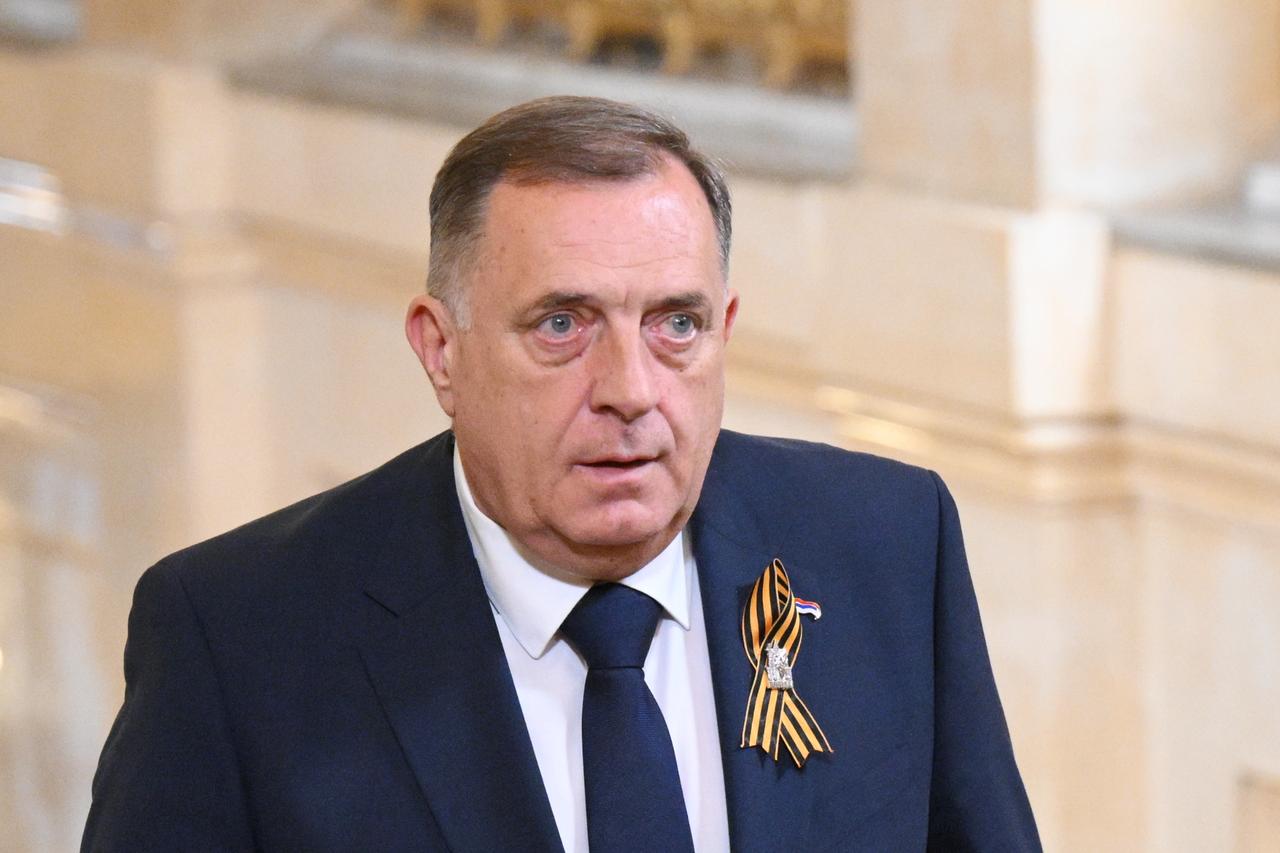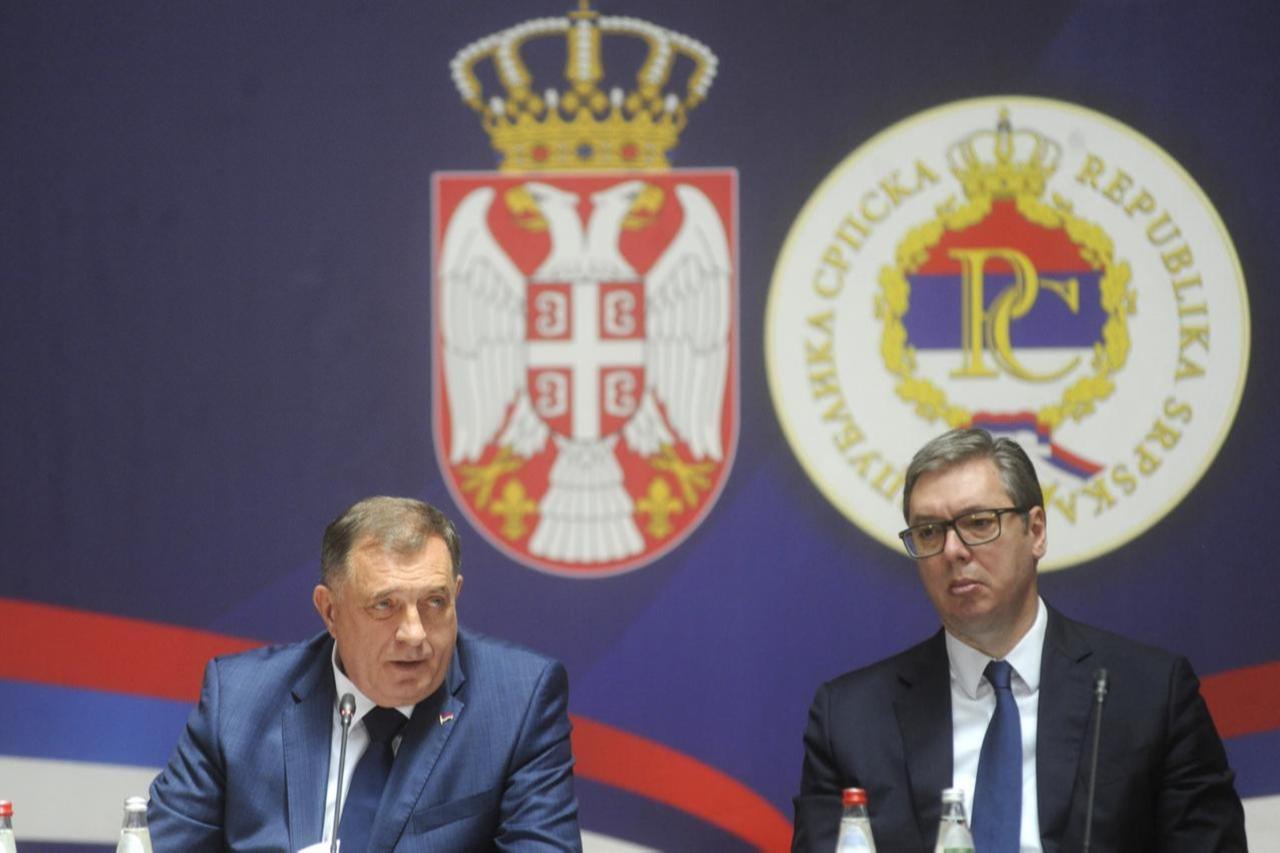
Bosnia’s Constitutional Court on Tuesday rejected an appeal by Bosnian Serb leader Milorad Dodik, upholding his ban from office for refusing to comply with decisions issued by the international envoy overseeing the country’s peace agreement.
The ruling marks Dodik’s final legal avenue in Bosnia’s judiciary after the State Court in Sarajevo found him guilty of defying the authority of the High Representative, Christian Schmidt, who is tasked with safeguarding the 1995 Dayton peace accords that ended Bosnia’s 1992–1995 war.
Dodik was sentenced in February to one year in prison and banned for six years from serving as president of Republika Srpska (RS), the Serb entity within Bosnia, or holding any public office. The sentence was later converted into a fine of around €19,000 ($21,800).
In July 2023, Dodik pushed legislation through the RS parliament blocking the enforcement of all decisions issued by the High Representative. Schmidt responded by amending Bosnia’s criminal code to make non-compliance with his decisions a criminal offense — the charge for which Dodik was convicted.
Dodik’s lawyers argued the High Representative lacked authority to alter the criminal code and that only the national parliament could do so. The court dismissed that argument, saying his claims about Schmidt’s status and authority were “unfounded.”
“The appellant’s right to a fair trial was not violated in the criminal proceedings against him,” the court said in a statement. It also rejected a related appeal concerning Dodik’s removal from his post by electoral authorities.

Dodik, a pro-Russian nationalist who advocates for RS secession and unification with Serbia, condemned the court decision.
He called the ruling “political” and said he has “no trust” in Bosnia’s central institutions, telling RTRS television he was “neither disappointed nor really upset.”
His lawyer confirmed plans to take the case to the European Court of Human Rights.
Political analysts said Dodik likely expected the outcome. “A reversal would have created chaos, particularly regarding the role of the High Representative in Bosnia,” said Adnan Huskic of the Friedrich Naumann Foundation.
Analysts also say the ruling raises questions about the legality of the RS government reshuffle initiated by Dodik after he had already been stripped of his mandate.
Early presidential elections in RS are scheduled for Nov. 23. Sinisa Karan — RS minister of science, technology and higher education and a former interior minister — is widely viewed as the frontrunner, backed by Dodik’s Alliance of Independent Social Democrats (SNSD).
One of Dodik’s close allies, Ana Trisic Babic, has assumed the role of acting RS president.
Whether Dodik can retain leadership of the SNSD will determine the extent of his remaining political strength, according to Huskic. “Removing him from it would be the final blow to his political power,” he said.
In late October, the United States lifted sanctions imposed on Dodik in 2017 for secessionist activity and obstruction of the peace agreement. Sanctions on other senior Bosnian Serb officials, Dodik’s family members and affiliated companies were also removed.
Prosecutors also dropped an investigation into Dodik over a since-repealed law that sought to bar Bosnia’s federal police and judiciary from operating in RS territory.
While Dodik’s authority has been damaged, some analysts argue he remains a player in Bosnian politics. Speaking to Turkish news agency Anadolu, Mustafa Krupalija of the International University of Sarajevo (IUS) said Dodik’s “long-unquestioned authority is now being questioned” and that court rulings dealt “the biggest blow of his political career.”
However, Jahja Muhasilovic, also member of IUS, told Anadolu that Dodik “is not politically finished” as he still leads the SNSD and has placed loyal figures in key positions.
He said Banja Luka Mayor Drasko Stanivukovic — the most popular Serb opposition figure — has avoided challenging Dodik, noting that “Serbia coordinated this process” and wanted to protect him.
Muhasilovic added that the Trump administration understood the influence of Türkiye and Russia in the region, saying Dodik will be less aggressive moving forward.
He also noted Türkiye’s growing geopolitical weight in Bosnia. “It has been understood that Türkiye is an indispensable factor here — this becomes clear in every crisis,” he said. “In the eyes of Bosniaks, Türkiye’s role has grown. During serious political attacks on Bosniaks, Türkiye was the only country standing by them.”